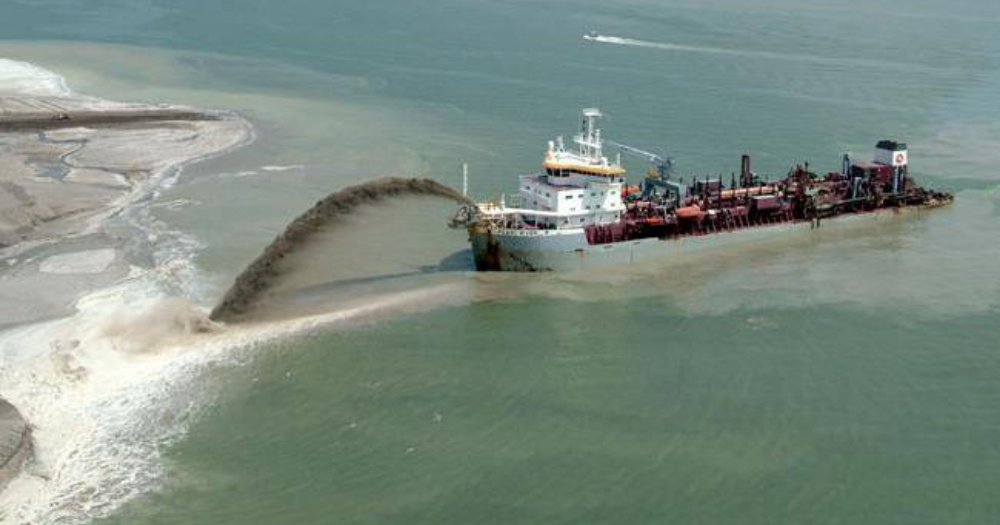News that Malaysia banned the export of sand to Singapore since October 2018 came to light on July 3, 2019.
This fact was kept under wraps and was not reported the past nine months.
However, contrary to what was reported, the reason for the ban was not because Malaysia Prime Minister Mohamad Mahathir wanted to curb Singapore's growth, at least according to the Malaysian government.
Talk about how this was so has been dismissed in Malaysia.
Ban is not targeted at Singapore only
Malaysia's environment minister Xavier Jayakumar cleared the air by clarifying that the ban had not been targeted at Singapore, and that sand exports to all countries had also been halted, The Star reported on July 4.
“I don’t want to single out one country. I don’t think there is any problem in our relationship with any countries as far as this business is concerned," he said.
"We have made a blanket decision and it stays that way.”
Jayakumar added that he did not think the ban would affect bilateral relations between Malaysia and Singapore.
No more sea sand exports for environmental reasons
Jayakumar elaborated that the ban had been imposed due to environmental concerns.
Mining for sand, also known as dredging, is an environmentally destructive process.
Not only are local ecosystems and biodiversity affected, the hydrological conditions of the water body such as its flow and size can be negatively affected as well.
Malay Mail reported that hydrogeological studies carried out by the Department of Mineral and Geoscience found that to protect the seabed, mining of sea sand cannot be done more than 3km from the shore.
However, although export of sea sand has been banned, Malaysia will still be exporting river sand to Singapore and other countries such as China, India, Mauritius and Brunei.
Sea sand is commonly used for land reclamation, while river sand is used in construction materials such as cement.
Ban will not affect Malaysia's export revenue
The ban could put a major dent in Singapore's land reclamation plans considering that 97 percent of its sand imports reportedly originate from Malaysia, according to The New Straits Times.
In 2018, Singapore imported 59 million tonnes of sand from Malaysia, costing around US$347 million (around S$470 million).
Singapore's sand imports also reportedly accounted for 95 percent of Malaysia's sales.
However, Jayakumar stated that Malaysia would not be affected financially, as the revenue from sand exports is "very small", according to The Star.
The ban would not impede Singapore's reclamation efforts, and that "nobody was stopping them", he also said.
“They can always buy sand from other countries for their reclamation process. Nobody is stopping them. We have no right to any country from doing reclamation," Jayakumar said.
With the loss of the country's main exporter of sand, the ban might push Singapore to turn to alternative reclamation strategies such as empoldering.
Currently, land is being reclaimed in Singapore for the Tuas "mega port", a project slated for completion in 2021.
Singapore has stated that the project is progressing on schedule.
Singapore's response
Singapore’s Ministry of National Development said sand is imported from various countries to ensure resilience in the supply.
“The government has also been encouraging the industry to reduce the reliance on sand,” a spokesperson said.
This was what CNA and Reuters separately reported the Singapore authorities as saying.
What was reported about sand ban
A Reuters report first broke the news that a ban on sand was imposed by Mahathir on Oct. 3, 2018.
Anonymous government sources up north claimed that the ban had been put in place as Mahathir was upset that Malaysia's land was being used to increase the size of Singapore.
This was the first time the ban was made public.
There was fear that its announcement would lead to a potential diplomatic fallout, the Malaysian government sources stated.
Top photo from Firdaus Siddiqui / FB
If you like what you read, follow us on Facebook, Instagram, Twitter and Telegram to get the latest updates.
